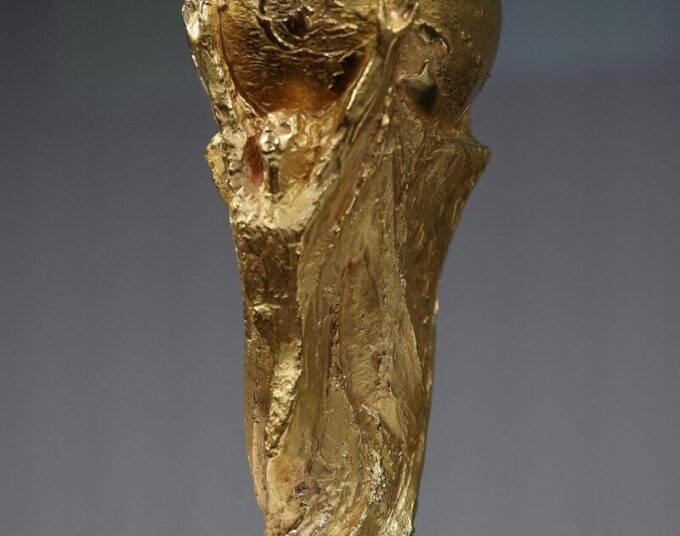By Henry Uche
The constant question on the lips of the Nigeria’s business community is; why is insurance penetration in Nigeria stagnated at one per cent?
The answer is not far-fetched. According to experts, years of policyholder neglect, unpaid claims and regulatory lapses have left the industry grappling with a crisis of confidence born of its own making.
Once seen as a financial safety net, the sector now faces widespread skepticism, much of it rooted in management failures that have eroded public trust and stunted market growth.
The management of financial, material and human resources within the insurance industry is a multifaceted and challenging endeavour.
Globally, a well-managed insurance company is one that operates with a clear vision, defined goals and strong leadership. Effective communication, both internally and with clients, is essential, as is the strategic allocation of resources to ensure sustainability and growth. A culture of accountability, coupled with robust performance tracking, allows for continuous improvement and problem-solving.
High employee morale and retention are critical to maintaining a motivated workforce that delivers exceptional customer service. Additionally, ensuring customer satisfaction, prudent financial management, strict regulatory compliance, and sound risk control measures are key indicators of an insurer’s commitment to long-term success and trustworthiness in the market.
Analysts say the aforementioned must be said about the nation’s insurance landscape if the desired success is to be achieved.
Industry observers have expressed concern over the past withdrawal of operational licenses and the suspension of management at several Nigerian insurance companies by the regulator, the National Insurance Commission (NAICOM). Many believe these actions have fallen short of expectations, contributing to a significant erosion of trust. As a result, the insurance sector’s reputation has suffered, leaving many Nigerians skeptical of the claims and assurances made by underwriters.
Several insurance companies in Nigeria have faced challenges that, perhaps unknowingly, have hindered the industry’s growth and potential, especially when compared to the more robust banking sector. A notable example is African Alliance Insurance Plc, one of Nigeria’s oldest life assurance providers. On October 30, 2024, the National Insurance Commission (NAICOM) exercised its regulatory authority by removing the Board and Management of African Alliance Insurance Plc (AAI) and appointing an Interim Management Board. This decision came after years of financial instability and the company’s failure to fulfill its obligations to annuitants and policyholders.
NAICOM stated that its decision to intervene in the operations of African Alliance Insurance Plc was based on a comprehensive review of the company’s financial health, governance, and operational practices. This in-depth assessment revealed serious concerns about the company’s ability to continue operating sustainably, particularly regarding its long-standing challenges with claims settlements and annuitant payments, which had caused considerable uncertainty.
To address these issues, NAICOM appointed an Interim Management Board, consisting of: Dr. Haruna Mustapha (Chairman), Mr. Jacob Erhabor (MD/CEO), Mr. Wasiu Amao (Executive Director, Technical), Ms. Oremeyi Longe (Executive Director, Finance), Mr. Anthony Achebe (Non-Executive Director), and Haj. Halimatu M. Khabeeb (Non-Executive Director). The Interim Board was given a six-month mandate, set to expire in May 2027, to manage the company and report back to NAICOM.
The Board was tasked with overseeing operations, ensuring compliance with regulatory standards, and implementing necessary reforms. NAICOM committed to collaborating closely with all stakeholders—including annuitants, policyholders, employees, and investors—to minimize disruption and ensure business continuity. The ultimate goal of the takeover was to safeguard the interests of the company’s stakeholders and the wider insurance sector while restoring the company’s financial stability and regulatory compliance.
African Alliance Insurance is not alone in this struggle. Other insurers such as Niger Insurance Plc (whose operating license was revoked in June 2022), Goldlink Insurance (whose management was taken over in 2012 to improve performance), Investment & Allied Assurance (IAA), which was suspended in 2011 due to financial concerns, and International Energy Insurance (IEI), all serve as stark reminders of how poor resource management can lead to the collapse of insurance businesses and erode public trust in the sector.
An investigation by Daily Sun has revealed that despite the National Insurance Commission (NAICOM)’s regulatory efforts, the outcomes have often been underwhelming, with many cases remaining unresolved. The notable exception is International Energy Insurance (IEI), which, after being fully acquired by the Norrenberger Group in 2023, successfully launched new products targeting MSMEs and other priority sectors.
Other insurance companies, however, have not been as fortunate. Standard Alliance Insurance Plc, whose license was also revoked on June 21, 2022, serves as a stark example. NAICOM appointed Receiver/Liquidators to oversee the assets and liabilities of both Niger Insurance and Standard Alliance in an effort to protect stakeholder interests, particularly those of policyholders.
The fate of thousands of customers left in limbo by these distressed insurers is a critical factor in why Nigeria’s insurance sector has failed to thrive in the same way as the banking sector. Aggrieved customers, disillusioned by their experiences, often resort to discrediting the industry, perpetuating its negative reputation and fueling distrust. This widespread discontent has contributed significantly to the sector’s struggles with credibility and growth.
NAICOM, however, is empowered by the Insurance Act of 2003 to take decisive actions, including license revocation, against companies that fail to comply with regulations or meet performance standards. According to the Act, NAICOM can cancel an insurer’s registration if it receives and verifies at least five complaints regarding delayed claim payments or if the insurer fails to submit its audited balance sheet and profit and loss account, as stipulated under section 26 of the Act, by the deadline of June 30 each year.
In 2015, under the leadership of the then Commissioner for Insurance, Mohammed Kari, NAICOM imposed stringent financial controls on Industrial and General Insurance (IGI) to curb the mismanagement of funds. Kari directed the company’s management to engage a reputable auditing firm to conduct a thorough review of its accounting systems, capital verification, and overall financial health. While the restrictions on daily spending helped save the company millions of naira, they also revealed a bloated corporate structure, with several directors having been on the board since the company’s inception more than two decades ago. Despite these efforts, stakeholders saw little tangible improvement in the company’s operations.
In a similar vein, NAICOM took action in 2012 against Alliance and General Insurance Company Limited and A&G Life Assurance Plc, suspending them from transacting business for six months. The suspension was triggered by a series of infractions, including the failure to submit accounts, misrepresentation of financial statements, and non-disclosure of liabilities. Other violations included the non-remittance of premiums and commissions, as well as significant corporate governance lapses.
Additionally, the once-dominant NICON Insurance, which was a leading player not only in Nigeria but also across Africa before its privatization during the Olusegun Obasanjo administration, faced its own set of challenges. Under the ownership of businessman Jimoh Ibrahim, who also took over Nigeria Reinsurance Corporation, both firms initially showed promise post-privatization. However, they later struggled to keep up with increasing competition. Eventually, both companies found themselves embroiled in a legal battle with the Asset Management Corporation of Nigeria (AMCON) over substantial debts, with NICON Insurance owing billions of naira in unpaid claims.
NAICOM’s interventions in the cases of struggling insurance companies underscore its commitment to maintaining the stability and integrity of Nigeria’s insurance industry. The Commission remains resolute in addressing concerns and protecting the interests of annuitants, policyholders, and the public at large. As stated by the Commissioner for Insurance, Mr. Ayo Omoshehin, the Commission will not hesitate to take stern actions against erring underwriters.
The distress faced by several insurance companies has resulted in financial hardship for hundreds of Nigerians and foreigners, with many struggling to recover their investments. An investigation by Daily Sun revealed that some policyholders of these distressed companies have passed away, leaving their next of kin or beneficiaries unaware of their investments.
Mrs. Cecilia M. Uwaifo, an annuitant and Secretary of the Lagos Chapter of the Company’s Annuitants Association, spoke to Daily Sun, revealing that around 6,000 annuitants across Nigeria are suffering from the situation. She said, “We’re truly enduring hardship. Some of us are ill, and our conditions are not improving. Some can’t even afford food. It’s unbearable. The government seems indifferent to our plight. We are already owed six months.”
Uwaifo, a retired official from the National Agency for Science and Engineering Infrastructure (NASENI), shared that the Association had petitioned the EFCC, PenCom, and the Federal Ministry of Finance, and held protests—yet to no avail. She added that the interim management of African Alliance Insurance (AAI) had advised them to direct their grievances to NAICOM. “The interim management has told us they are answerable only to NAICOM. After our protest, they paid us for just two months. Six months have passed, and we still don’t know what our fate will be,” she lamented.
When asked about her trust in Nigeria’s insurance sector, Uwaifo, who is 65, reflected on her experience with car insurance, saying, “From the start, I’ve faced difficulties. Whenever I tried to renew, they’d just toss me around. Sadly, the government and policymakers are silent. If the system is broken, they should scrap it and return us to a Defined Benefits Scheme.” She voiced frustration with African Alliance, stating, “They misused the money they collected. This is why I don’t believe in insurance. I don’t like them—capital letters!”
Another annuitant, Alhaji Gbadebo Olatokunbo, a co-founder of the Nigerian Shareholders Solidarity Association (NSSA) and a retiree of NTA Lagos, echoed similar concerns. He shared that life has been difficult for him and other annuitants since receiving payments in September and October. “Six months without payment. NAICOM has failed us. Unlike the CBN, which wouldn’t allow a bank to fail before stepping in, NAICOM acts like it’s not a regulator. If it were, we wouldn’t be in this mess.”
Olatokunbo, who worked as a principal officer at NTA, also expressed frustration with the younger generation, stating that many annuitants have no dependents, as today’s youth no longer feel the responsibility to care for aging parents, unlike his generation. He mentioned that he had threatened to invoke ancestral spirits on the company due to their failure to pay his pension for over six months, adding, “These people know retirees don’t have the resources to take them to court, but if we could, we would sue NAICOM for negligence and African Alliance for breaching its obligations. People in Nigeria often get away with bad deeds, but they won’t escape this. Karma will catch up with them.”
He went on to advise his colleagues to avoid discussions with AAI and NAICOM, whom he described as their tormentors. “Some of my friends now come to me asking for help. From what we’ve learned, some of us have already passed away,” he concluded, a note of sorrow in his voice.
An annuitant at African Alliance Insurance (AAI), Effiong, expressed frustration over the company’s treatment of its policyholders: “AA paid me less than five hundred naira last week. I am one of the few people who is ever blunt in writing or speaking about AA. The truth is, they have mismanaged our money through theft or other well-designed methods. But must they sell property before we are paid? If the government regulators aren’t in agreement with them, they are certainly not doing their job. It has become too common in Nigeria to steal money and go scot-free. Otherwise, the former management should be held accountable and thoroughly investigated.”
He continued, “The battle is not over, so please be ready for another. These people thought by now most of us would have passed away, but that’s false. The Almighty God, the giver and sustainer of life, will keep us in health and beyond their expectations. Let us stay positive and be prepared to fight again. Till death do us part, our efforts are not in vain. The ball is in the court again, even as the struggle continues.”
Meanwhile, an anonymous employee of AAI provided insight into the company’s troubles, blaming financial mismanagement. “What African Alliance did was, when they had money, they decided to use it for other things rather than investing it properly. They didn’t consider inflation, interest rates, and other economic challenges. Instead of making the right investments from the beginning, they spent money that should have been invested.”
The source recalled that AAI was once a top player in the life insurance sector. “Decades ago, African Alliance was one of the best places to work. It was either number one or two in life insurance. But as I said, too much money can be a problem. Imagine giving one million naira to a gateman whose salary is 50,000 naira—he won’t be able to handle it and will squander the money until it’s reduced to 50,000 naira. This is what happened in Nigeria’s insurance industry.”
The employee also criticized NAICOM for not bringing in the right leadership. “NAICOM made a mistake. The first course of action should have been to restore customer confidence. They should have communicated with customers, brokers, investors, and other stakeholders to reassure them that every debt would be paid. This would have encouraged them to keep investing in the business. But that hasn’t been done.”
He continued, “I’m not sure if NAICOM mandated the interim management to sell assets and pay off customers, but business isn’t run that way if you want it to survive. You need to instill confidence, and the interim management has failed to engage with active customers. There’s no real-time interaction, and there’s no new business or continuation of business.”
The employee revealed that brokers, who used to generate up to 70% of the business, can now barely bring in 5%. “The company is spending money that’s left from asset sales and leases while no new income is coming in. That’s why I said they brought in the wrong people.”
He also lamented the high staff attrition, noting, “Half the staff I joined with have left, some of them after 15 or 20 years. They’re leaving because of bad management. Perhaps the return on investments started diminishing as interest rates went down. If the management had been more cautious with their investments, at least they could have preserved the capital, but now, the company is in a precarious situation.”
There have also been rumors about the interim management buying SUVs for themselves, which adds to the distrust surrounding the company.
As for a way forward, the insider suggested that African Alliance could revive itself if it restored customer and investor confidence. “First, they need to communicate with customers and stakeholders through all available channels. They should keep people informed about their actions. They’re working in silos, and that’s not how things should be. They need to keep stakeholders informed, no matter how small the progress. Sadly, up until now, no SMS, emails, or any communication has been sent. This is why insurance in Nigeria is often seen as the ‘weeping child’ of the financial industry.”
If AAI were to close, the employee warned, it would severely impact the insurance industry’s credibility. “People would stop believing in the industry. The only thing people might still trust is vehicle insurance.”
The employee also suggested that NAICOM consider removing the Managing Director, who, in the staff’s opinion, has been ineffective. “The MD hasn’t done anything new. The old board members, who had a personal stake in the company, would have acted faster and more decisively. These new people don’t care if staff are resigning or if new business is coming in. They’re only focused on making payments from proceeds of asset sales and leases. How can a business continue to live off existing assets with nothing coming in? That’s not sustainable.”
He further suggested that the MD’s position should be eliminated and replaced with two seasoned sales professionals who can restore confidence and attract new business. “The money used to pay these marketers would be less than half of what the MD is currently earning. The Technical Executive Director can manage the company alongside the MD role, and this new approach could rejuvenate the company.”
As of April, the six-month deadline given to the company has expired, and stakeholders are closely watching to see what happens next. The company was able to pay annuitants two months’ worth of benefits from the proceeds of asset sales or leases.
At the time of this report, African Alliance Insurance stated that it would issue a statement addressing these issues, especially those concerning the company’s future.

















Leave a comment